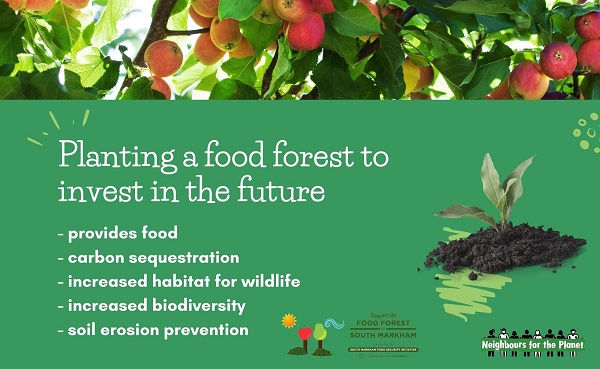Electric Vehicles Are Still a Good Deal
- Martin Bush

- Jun 12, 2020
- 5 min read
Updated: Jan 23, 2021
Written by Martin Bush for Neighbours for the Planet
June 12, 2020
Electric vehicles (EVs) no longer enjoy a subsidy in Ontario, after Premier Doug Ford shut the rebate down in 2018, but electric vehicles are still selling well—although not as rapidly as in Quebec and British Columbia where the rebates offered by the provincial governments have driven much higher sales than Ontario.
Although the federal government continues to offer a rebate of $5000 for an electric vehicle (up to a purchase price of $45,000), the cost of an EV is still more than a comparable conventional car or SUV. So does it make sense to buy an electric car, or should you wait a couple of years until EV prices gradually fall into the range of conventional internal combustion engine (ICE) vehicles?
Electric vehicles have significantly lower operating costs compared to ICE vehicle, but are they large enough to compensate for the difference in the purchase price? Many York-region drivers who have purchased an EV in the last few years definitely think so.

Andy and Robin Enotera with their just purchases 2017 Nissan Leaf
Andy Enotera, who lives near Aurora, purchased a second-hand 2017 Nissan Leaf this year. “It’s very inexpensive to drive, approximately $4 to travel 130 km”, he estimates. Myles O’Brien, who lives in Stouffville, agrees. “My Leaf has literally been maintenance-free, I would guess on a monthly basis the Leaf costs no more than $30-40, versus at least $200 for a gas-powered car”.
These savings add up. Bogdan Hlevca drives to work from his home in Markham in a 2017 Chevrolet Volt (a plug-in hybrid EV) and reckons he saves at least $2000 a year. In Aurora, Walter Bauer’s 2018 Nissan Leaf is equally parsimonious: “We save approximately $2000 per year on fuel, maintenance, and reduced insurance. We take it in for maintenance once a year to change the cabin filter and check the brakes and battery.”

Walter Bauer, with his 2018 Nissan Leaf
Whether these savings compensate for the increased purchase price—even after the federal rebate, depends on two main factors: how big the difference in price is, and how far you drive. The greater the distance you drive in the course of a year, the more quickly you will recoup the price differential. The cost of fuel is also a factor, but in Canada, electricity nearly always works out less expensive than gasoline--particularly when charging is done overnight at reduced rates.
The payback period could be as short as 2 or 3 years—sometimes longer. So a bit of math is going to be required to get a handle on how long the pay-back period is. A visit to Plug’n Drive’s Electric Vehicle Discovery Centre in North York is a good place to go to get a better idea of which model fits your lifestyle and pocketbook.
Erik Haltrecht, who lives in Toronto, has both a Nissan Leaf and a Tesla Model S. He loves the fact that he hasn’t pumped any “stinky gas” for seven years. His advice for those thinking about buying an electric car? “Stop thinking and buy one sooner than later. Just ensure that you’re buying one that has adequate range for your lifestyle. Always remember that that the initial purchase may be more but the costs after delivery are almost negligible.”

Myles O'Brien with his Nissan Leaf
Range anxiety is a thing of the past. The newer models have increased range, and longer trips are becoming much easier, as the government builds out charging infrastructure along the major highways across the country. The Canadian winter can be a challenge—since the range of an EV is reduced in freezing weather. The tip is to make sure that the model you chose has sufficient capacity to compensate for the reduced winter performance—which is typically in the 20 to 30% range.
For many people, purchasing an electric vehicle isn’t just a question of buying a nice car. Electric vehicles have zero emissions. That means no greenhouse gases that contribute to global warming and climate change. Moreover, the lockdown caused by the Covid-19 pandemic has brilliantly illustrated the unexpected clarity of clean urban air. The smog caused by hundreds of thousands of vehicles burning gasoline and diesel fuel in towns and cities has seriously detrimental health impacts. Respiratory disease, worsening asthma, heart disease and even increased infant mortality are all exacerbated by the tailpipe emissions of conventional ICE vehicles. Over a decade ago, the Ontario Medical Association estimated that air pollution from ground level ozone and particulate matter cost the Toronto economy over $2 billion a year. Nearly all of this pollution is caused by the emissions from conventional road vehicles. Purchasing an electric vehicle makes a clear statement: I care about the environment and I’m doing something about it!
Art Lightstone’s family runs two Teslas out of his Newmarket home, and his concern about climate change was a factor in the purchase of the cars. “Knowing that we’re not contributing to climate change every time we drive is, for us, a game changer. For my family, we would not drive a car unless we had to”, he says. “Now we have cars that we can take wherever we want, without pausing to weigh the social costs. For us, this really does add a whole new level of utility and freedom to owning a vehicle”.

Art Lightstone with one of his Teslas
Switching to an electric vehicle is not the only way to reduce air pollution in the urban environment and reduce Canada’s emissions of greenhouse gases. As Myles O’Brien notes: “While electric vehicles are a smart and realistic choice for many drivers, the most sustainable forms of transportation are those that demand the fewest resources and infrastructure—i.e. walking and cycling.”
The transition to electrified transportation is well underway in Canada. But the pace of change needs to accelerate strongly. If you are thinking about a new car, now’s the time to consider an electric vehicle.

Bio: For the past 35 years, Martin Bush has led programmes in Africa and the Caribbean on natural resources management, renewable energy, and climate change management. He has managed projects in Madagascar, Mali, Guinea, Sudan, Egypt, Djibouti and Haiti. He returned to Canada in 2018 after leading a European programme in Djibouti focused on climate change adaptation. He has a PhD in chemical engineering and fuel technology from the University of Sheffield, UK, and an MSc in Protected Landscape Management from the University of Aberystwyth, in Wales, UK.
Martin is the regional organiser for southern Ontario for the Climate Reality Project, and also head of the School of Climate Management at the Resilient World Institute in Markham.
Martin has recently published a book : Climate Change and Renewable Energy: How to end the climate crisis (Palgrave MacMillan). He also writes a regular blog at www.climatezone.org.



Comments